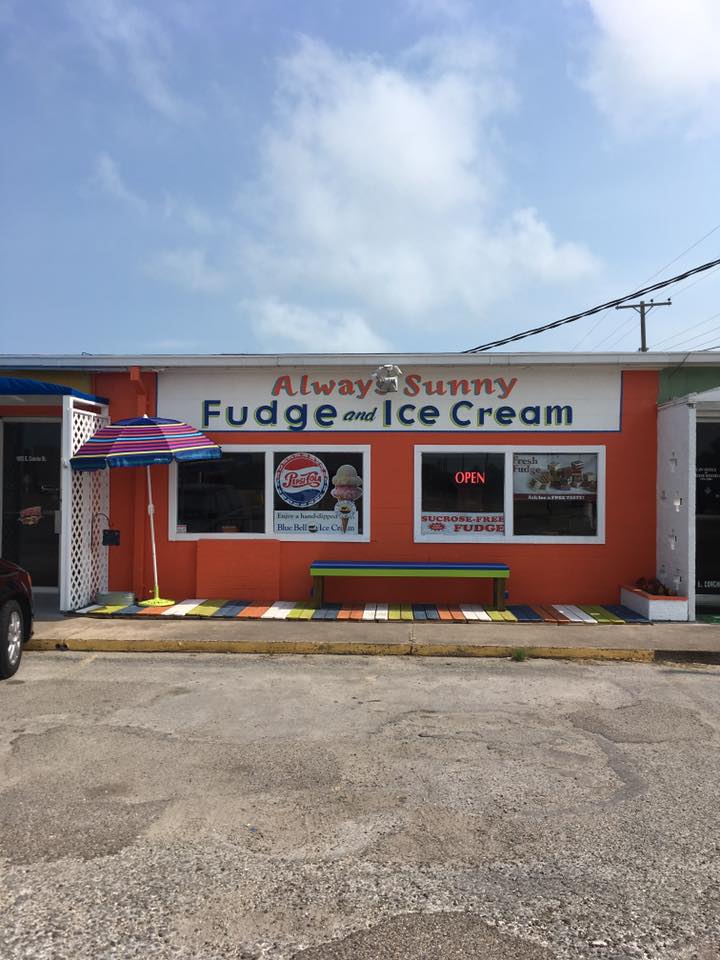By Terri Langford
The Dallas Morning News
WWR Article Summary (tl;dr) Insurance — or the lack of it — will play a huge role in determining who recovers and who does not in all the areas hit by Harvey. But it will be particularly important in the resort towns that dot the barrier islands and coast of South Texas.
ROCKPORT
After running a popular food truck in this beach town, Melissa Smith took a giant step three months ago: she rented space in a commercial building downtown and opened Always Sunny Fudge and Ice Cream.
Last week, Hurricane Harvey peeled the roof off the place and drenched it. Ruined were the cases where she displayed handmade candy and sweets, as well as the equipment she used to make gyros and mango drinks.
And she got an even nastier surprise: the building was not insured and will probably have to be demolished.
Which means she can’t reopen, even though her own insurance on the shop’s contents should cover some of her losses.
She is not sure what to do next. “For now, we will have to wait,” she said.
Insurance — or the lack of it — will play a huge role in determining who recovers and who does not in all the areas hit by Harvey. But it will be particularly important in the resort towns that dot the barrier islands and coast of South Texas.
In places like Rockport, wedged between two bays northeast of Corpus Christi, the businesses are mostly small, commercial budgets are tight, and locations near the water makes insurance expensive, when you can get it at all.
Despite the risk, some business owners opt to go without special insurance for floods or windstorms, which are not covered by basic policies in Texas. That means getting Rockport’s core tourist-related businesses up and running could depend more on business owners’ pocketbooks than insurance.
Bob Hamilton, who with his family owns the former sweet-shop building and many other commercial properties or businesses in the Rockport area, said Hurricane Ike drive the cost of windstorm insurance “through the roof.”
“Your tenants can’t stand the higher rents so the only option you’ve got to be able to pay your bills is forego windstorm insurance,” he said. “You cross your fingers and hope it won’t get you.”
Christina and Robert Urdiales married last year; police officers in San Antonio, less than 200 miles to the northwest, both are close to retirement. They looked to Rockport for their second act: He’s hoping to launch a fishing guide service while she is working on opening a handcrafts store in the Heritage District by Christmas.
While they had windstorm insurance for their Rockport home, her business’ building carried only a basic commercial policy. And getting that was tougher than she had anticipated.
“No one wants to touch it because of the location, because of the water,” she said. “It was very frustrating to me.”
To cover wind damage, she had planned to apply for a state program that serves as “insurer of last resort” for the Texas coast. But by the time Urdiales heard of Hurricane Harvey, it was too late; once a storm enters the Gulf of Mexico, the program stops writing new policies.
“I waited too long,” she said.
From San Antonio, Urdiales held her breath. “I was nail-biting — I was in tears the whole time,” she said.
When they were able to reach Rockport, they found their home without a wall standing — but at least they had insurance. Not so for the yet-to-open store, where water had come in through the roof.
“The roof will come out of our pocket,” she said, adding, “I can live with a leaky roof. I consider myself one of the lucky ones.”
Windstorm claims are already pouring into the state program, the Texas Windstorm Insurance Association. Residents of Nueces County, which includes Corpus Christi, had filed 9,808 claims by Aug. 31; Aransas County, which includes Rockport, came in second with 4,852 claims. Only a sliver of Houston’s Harris County is covered by the state program.
Major insurance companies have been pulling back from coastal areas, most noticeably in Florida after 2004 and 2005, when a series of hurricanes and tropical storms pummeled that state.
“There are some risks that are so high that it is not practical or possible to charge a high enough rate to provide a reasonable chance for the premium we collect to at least match the risk,” said Jim Camoriano, a spokesman for State Farm Insurance. “Our customers are our top priority and we want to be able to meet their needs.”
To try to speed recovery, the Texas Association of Business in Austin is working on matching up businesses in Rockport and other towns hard hit by Harvey with similar businesses elsewhere.
“We’re cataloging things, what they need to get back up to speed,” said Aaron Cox, the association’s vice president of member services and chamber relations. “Whether it is tools or cleaning services or a generator.”
Business owners in Rockport have also been putting out public cries for help. Smith, the ice-cream entrepreneur, posted on Facebook that she needed someone with a backhoe to help get rubble from the roof off her food truck, which had been parked behind the shop.
By the next day, the truck had been rescued — and was undamaged. Will she have to return to running her business from it?
“I don’t know,” she said.














































































































































































































































































































































































